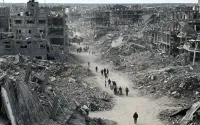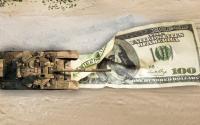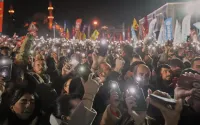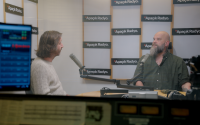3 August 2006Juan Cole
The U.S. punditocracy and ruling elite is fixated on Hizbullah as a "terrorist group" even though the organization hasn't engaged in international terror against American civilians in many years. What they forget about Hizbullah is that it is also a Shiite religious party, and that that is how it is perceived for the most part by Iraqi Shiites. Some 45 percent of Lebanese are probably Shiites.
The other thing to remember is that the United States is now a Shiite Power in part, insofar as it semi-rules a Shiite-majority country, Iraq.
The Associated Press is carrying the story that Grand Ayatollah Ali Sistani has demanded an immediate ceasefire in Israel's war on Lebanon, in the wake of the Qana massacre:"Islamic nations will not forgive the entities that hinder a cease-fire," al-Sistani said in a clear reference to the United States.
"It is not possible to stand helpless in front of this Israeli aggression on Lebanon,'' he added. "If an immediate cease-fire in this Israeli aggression is not imposed, dire consequences will befall the region.''
Sistani had earlier condemned Israeli air raids on Lebanon but had confined himself to ordering the Iraqi Shiite religious establishment to provide aid to victims of the war in Lebanon.
Sistani's statements of early Monday morning (which are not yet reflected at his website in Arabic) go substantially beyond his earlier statement.
Several questions arise: 1) Why is Sistani speaking like this? 2) What can he do about it all? and 3) What are the possible consequences if he turns anti-American in practice, not just in rhetoric, as in the past?

Sistani is taking such a hard line on this issue not only because he feels strongly about it (his fatwa against the Jenin operation of 2002 was vehement) but also because he is in danger of being outflanked by Muqtada al-Sadr. Sadr's Mahdi Army is said to be "boiling" over the Israeli war on Hizbullah, since after all the Sadrists are also fundamentalist Shiites and they identify with the Lebanese Hizbullah. There have already been big demonstrations in Baghdad against the Israeli attacks, to which Sadrists flocked but probably also other Shiites.
Sistani cannot allow Muqtada to monopolize this issue, or the young cleric's legitimacy will grow among the angry Shiite masses at the expense of Sistani's.
Sistani is not linked to Hizbullah, which is strongly Khomeinist in orientation. Sistani largely rejects Khomeinism. He told an Iraqi acquaintance of mine, "Even if I must be wiped out, I will not allow Iraq to repeat the Iranian experience." When Sistani had his heart problems in summer, 2004, he flew to London via Beirut. He stopped in Beirut several hours, and Nabih Berri came out to the airport to consult with him. Berri is the speaker of the Lebanese parliament and the leader of the Amal Party. Amal is the party of the secularizing, moderate Lebanese Shiites. It was more militant in the 1980s but it mellowed.
So Sistani's political ties in Lebanon go to Amal much more than to Hizbullah. Sistani has many followers or "emulators" (muqallidun) among the Lebanese Shiites, though the hard core Hizbullahis tend to follow Supreme Jurisprudent Ali Khamenei of Iran instead. Some Lebanese Shiites follow the Lebanese grand ayatollah, Husain Fadlullah.
Note that Amal is allied with Hizbullah in parliament, and some Amal fighters have been killed in clashes with Israelis in the deep south. Amal abandoned its paramilitary during the 1990s, but seems to have kept some units active down near the Israeli border.
So Berri would have been in a position to implore Sistani to intervene. Sistani is hoping for something like a moderate Amal party to coalesce in Iraq and would want to help Berri any way he could.
Sistani has issued a warning to the United States. He wants Bush to intervene to arrange a ceasefire, i.e. the cessation of israeli air raids on Lebanon in general.
What could he do if he were ignored? Sistani could call massive anti-US and anti-Israel demonstrations. Given Iraq's profound political instability, this development could be extremely dangerous. U.S. troops in Baghdad and elsewhere are planning offensives against Shiite paramilitary groups, so tensions are likely to rise in the Shiite areas anyway. But big demonstrations could easily boil over into actual attacks on U.S. and British troops. Both depend heavily on fuel that is transported through the Shiite south. Were the Shiites actively to turn on the U.S. for its wholehearted support of continued Israeli air raids, the U.S. military could be cut off from fuel and supplies. The British only have around 8,000 troops in Iraq, and they would be in profound danger if Iraq's Shiites became militantly anti-occupation.
Since the Israeli treatment of Arabs is an issue on which Sunnis and Shiites agree, there is also a possibility that Sistani could finally get some respect from the Sunni community if he led such a compaign. That development would be more dangerous to the continued U.S. military presence in Iraq than any other I can think of.
The U.S. is already not winning against a Sunni Arab insurgency, backed by around 5 million Iraqis. If 16 million Shiites turned on the U.S. because of its wholehearted support for Israel's actions in Lebanon, the U.S. military mission in Iraq could quickly become completely and urgently untenable. In this case, the British troops in particular would be lucky to escape the country with their lives.
Sistani does not issue threats lightly, and he has repeatedly shown a willingness to back them up with action. Bush and U.S. ambassador to Iraq Zalmay Khalilzad will ignore him to their peril.
Juan Cole is a professor of history at the University of Michigan and maintains the popular blog Informed Comment.
http://www.alternet.org/story/39717/






